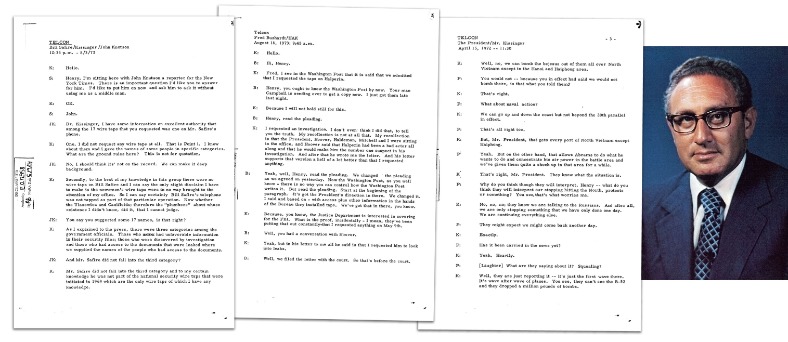Category: National Security Archive
Anatoly S. Chernyaev Diary, 1983
Thursday, 25 May 2023 — National Security Archive

At the Central Committee: “what a humiliating role I am in, doing everything I can to dress a naked, completely naked king”
KAL shootdown “showcased with monstrous obviousness the power and pressure of the ‘military complex’ over our entire life and politics”
On nuclear war: “this vast world, full of fantastic achievements of the human mind and labor, can in a few short minutes fall victim to a nervous breakdown of one of the two ‘superpower’ leaders”
Henry Kissinger’s Documented Legacy
Thursday, 25 May 2023 — National Security Archive
A Declassified Dossier on HAK’s Controversial Historical Legacy, on His 100th Birthday
Kissinger’s 8 Years in Power Changed Chile, Cambodia, East Timor, Angola, and Much of the World, for the Worse
The Cuban Missile Crisis @ 60 Getting to Know the Cubans: Part 2
Thursday, 3 November 2022 — The National Security Archive

Che Guevara asked Soviet bloc to buy 4 million tons of Cuban sugar
Cubans described exact scenario of future Bay of Pigs invasion; asked for military training; wanted USSR to think of Cuba as its own territory
Please do not tell Fidel: Raúl Castro and Che Guevara hid communist party affiliations from Cuban leader
Washington, D.C., November 3, 2022 – As Cuban-Soviet ties grew stronger from late 1960 through early 1961, the Cubans repeatedly asked for military assistance and security guarantees from the Soviets and expressed growing concern about the threat of a U.S. intervention, according to Russian archival documents published today by the National Security Archive. The Cubans described to the Soviet leadership detailed scenarios for a Bay-of-Pigs style invasion only months before the Kennedy administration mounted its failed covert operation in April 1961.
The Cuban Missile Crisis @ 60 The Most Dangerous Day
Thursday, 27 October 2022 — National Security Archive

Joint Chiefs: “The president has a feeling that time is running out”
Cascade of human errors, nuclear-armed flashpoints, on October 27 nearly started World War III by accident
JFK: “always some SOB who doesn’t get the word”
The Cuban Missile Crisis @ 60 Briefing NATO Allies
Friday, 21 October 2022 — National Security Archive
-
British Ambassador First Outsider to Learn of Kennedy Decision for Blockade
-
British Told of U.S. Preemptive Nuclear Strike Plan if Soviets Moved Against West Berlin
-
Belgian Foreign Minister “Preferred U.S. to Inform NATO Allies 24 Hours in Advance”

Getting to Know the Cubans: Khrushchev Meets the Castro Brothers
Friday, 14 October 2022 — National Security Archive
 Raul Castro wanted detailed Soviet security assurances, expected U.S. intervention
Raul Castro wanted detailed Soviet security assurances, expected U.S. intervention
Khrushchev insisted intervention unlikely, urged flexibility on Cuba’s part
Soviet leader promised to fully replace U.S. as trade partner
Washington, D.C., October 14, 2022 – Today the National Security Archive publishes for the first time in any language a translation of the first meeting between Soviet Premier Nikita Khrushchev and Cuban Defense Minister Raul Castro on July 18, 1960. The newly available transcript helps explain Khrushchev’s 1962 determination that defending Cuba from U.S. intervention would require a massive Soviet military base in Cuba, together with the deployment of nuclear weapons. The Cuban leader asks for details of how the USSR could protect Cuba, but Khrushchev insists on restraint and flexibility, saying that he does not want a “big war.”
Australian Spies Aided and Abetted CIA in Chile
10 September 2021 — National Security Archive
On 48th Anniversary of the Military Coup, Archive Posts Never-Before-Seen Australian Intelligence Service Documents on Anti-Allende Covert Ops
CIA Requested Clandestine Australian Support after Allende Election; Australian Intel Service Opened Station in Santiago, Records Confirm
Afghanistan 20/20: The 20-Year War in 20 Documents
19 August 2021 — — Origin: National Security Archive
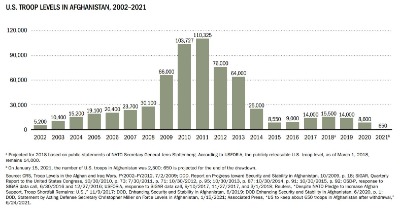 Primary sources contradict Pentagon optimism over decades
Primary sources contradict Pentagon optimism over decades
Pakistan sanctuaries, Afghan corruption enabled Taliban resurgence
Bush nation-building, Obama surge, Trump deal all failed
Washington, D.C., August 19, 2021 – The U.S. government under four presidents misled the American people for nearly two decades about progress in Afghanistan, while hiding the inconvenient facts about ongoing failures inside confidential channels, according to declassified documents published today by the National Security Archive.
Israeli Attack on Iraq’s Osirak 1981: Setback or Impetus for Nuclear Weapons?
7 June 2021 — — Origin: National Security Archive
CIA and U.S. diplomats warned in 1979-1980 that Israel might attack
Reagan administration missed level of Carter’s concern, so were taken by surprise
Saddam Hussein saw himself “on the side of the angels” and Israel was “increasingly … viewed as the international pariah,” CIA official noted
France took secret “preventive measures” to block Iraqi weapons capability, unbeknownst to Iraqis
The Chernyaev Centennial
25 May 2021 — National Security Archive
100th Birthday of Anatoly Sergeyevich marked with latest translated excerpt of his “irreplaceable” diary — the year 1981
Architect of “New Thinking,” champion of glasnost, prolific historian, hero of the end of the Cold War, key source for scholars
Even as Polish Solidarity crisis peaked, Brezhnev “apparently never seriously considered” sending in troops
If Sovietologists got to be a “fly on the wall at the Politburo,” nobody would ever believe this fly
“Questionable Activities”: CIA Assassination Plot Targeted Raul Castro
16 April 2021 — National Security Archive
As Castro retires on 60th anniversary of the Bay of Pigs, National Security Archive posts declassified, top secret CIA cables, reports from 1960
Agency officials willing to pay over $10,000 for ‘fatal accident’
 Washington D.C., April 16, 2021 – In the earliest known CIA assassination plot against leaders of the Cuban revolution, high agency officials in 1960 offered the pilot of a plane carrying Raul Castro from Prague to Havana “payment after successful completion of ten thousand dollars” to “incur risks in arranging accident” during the flight, according to formally top secret documents posted today by the National Security Archive. The pilot, who the CIA had earlier recruited as an intelligence asset in Cuba, “asked for assurance that in event of his [own] death the U.S. would see that his two sons were given a college education.” “This assurance was given,” his CIA handler in Havana, William J. Murray, reported in a later memorandum titled “Questionable Activities.”
Washington D.C., April 16, 2021 – In the earliest known CIA assassination plot against leaders of the Cuban revolution, high agency officials in 1960 offered the pilot of a plane carrying Raul Castro from Prague to Havana “payment after successful completion of ten thousand dollars” to “incur risks in arranging accident” during the flight, according to formally top secret documents posted today by the National Security Archive. The pilot, who the CIA had earlier recruited as an intelligence asset in Cuba, “asked for assurance that in event of his [own] death the U.S. would see that his two sons were given a college education.” “This assurance was given,” his CIA handler in Havana, William J. Murray, reported in a later memorandum titled “Questionable Activities.”
Crises, Alerts, and DEFCONS, 1961-1976 – Part II
8 April 2021 — National Security Archive
Berlin Crisis in 1961-62 Disclosed U.S.-European Gap on Nuclear Use, with French and Germans Supporting Early Use over U.S. Objections
B-52 Bombers Were Used for Shows-of-Force during Altercations with North Korea
During October 1973 War DEFCON 3, 99.5 Percent of U.S. ICBMS Were on High Alert
 Washington, D.C., April 8, 2021 – The United States and its European allies disagreed over the advisability of using nuclear weapons to signal resolve and deter war if a serious crisis with Moscow over West Berlin broke out, according to a review of declassified records posted today by the nongovernmental National Security Archive.
Washington, D.C., April 8, 2021 – The United States and its European allies disagreed over the advisability of using nuclear weapons to signal resolve and deter war if a serious crisis with Moscow over West Berlin broke out, according to a review of declassified records posted today by the nongovernmental National Security Archive.
The Clinton White House and Climate Change, Part II: Engaging the Oval Office
5 April 2021 — National Security Archive
Like Biden, Clinton Faced Big Challenges: Presidential Role Was Vital to the Strategy
China, Congress Presented Major Tests for the White House
Post-Mortem Cable Laments “Clock Ran Out” on Clinton, Criticizes China, EU, and G-77 for Obduracy
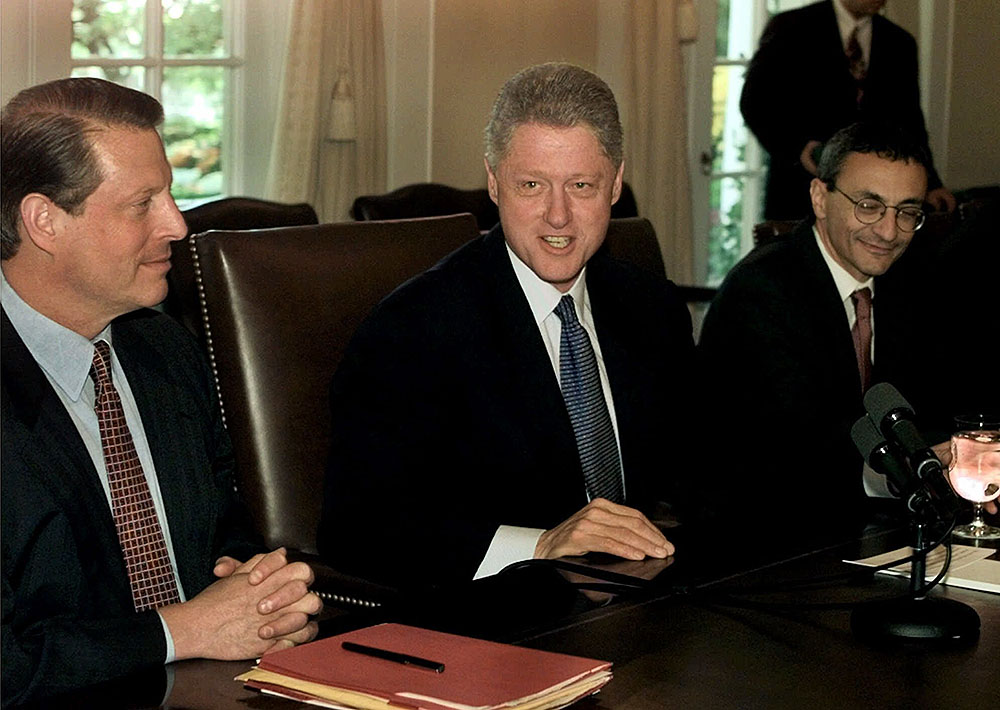 Washington, D.C., April 5, 2021 – President Bill Clinton’s climate policy faced some of its biggest challenges from two very different quarters – China and the Congress – according to a collection of recently declassified internal papers posted today by the nongovernmental National Security Archive.
Washington, D.C., April 5, 2021 – President Bill Clinton’s climate policy faced some of its biggest challenges from two very different quarters – China and the Congress – according to a collection of recently declassified internal papers posted today by the nongovernmental National Security Archive.
Gorbachev’s Greatest Hits
2 March 2021 — National Security Archive
Mikhail Sergeyevich Turns 90; Archive marks milestone with new publication of Gorbachev memcons with Castro, Mitterrand, and Shamir; compilation of dozens of Gorbachev primary sources.
Gorbachev made history, then freed history by opening his documents
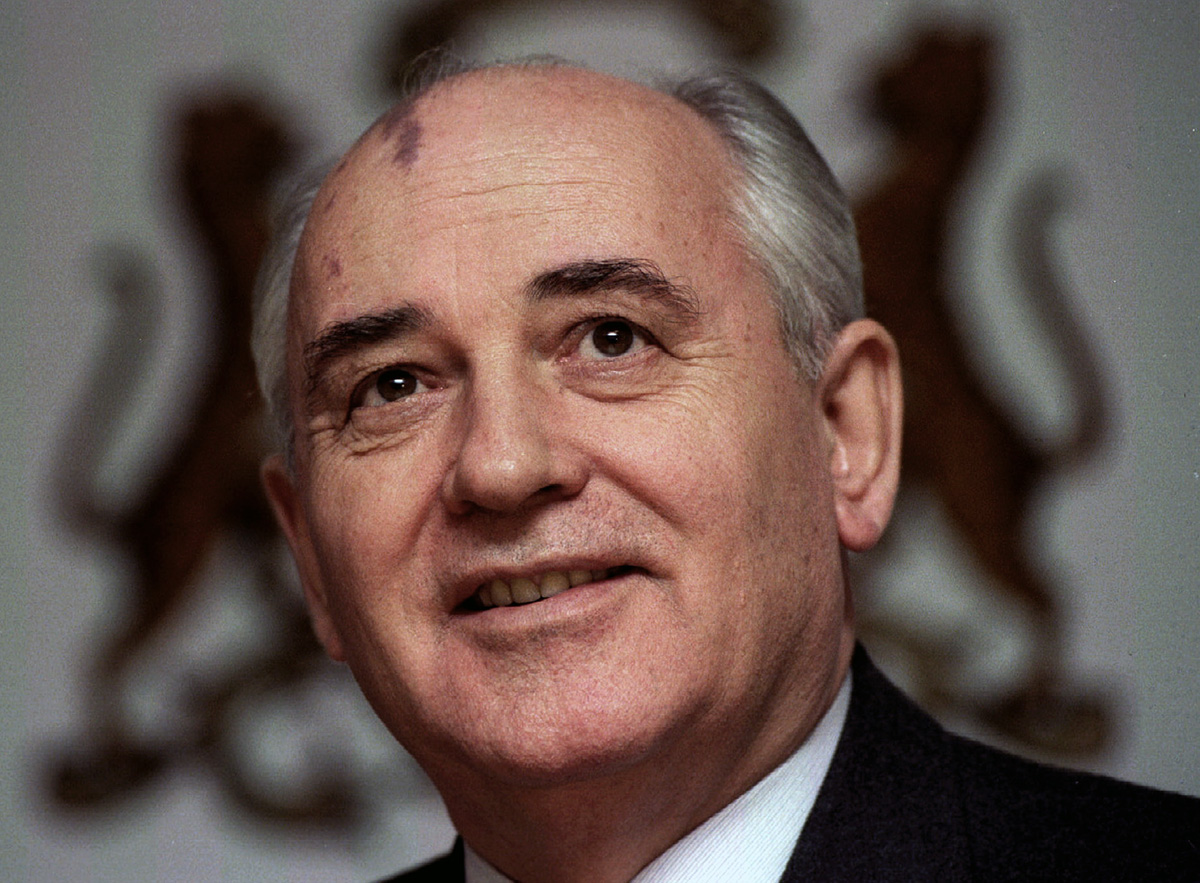
Washington, D.C., March 2, 2021 – The first and only president of the Soviet Union, Mikhail Sergeyevich Gorbachev, is turning 90 years old today in Moscow. On the occasion of his anniversary, the National Security Archive has compiled a collection of postings called “Gorbachev’s Greatest Hits.” These documents help illuminate the story of the end of the Cold War, political reform of the Soviet system, and the vision of a world built on universal human values.
Allende and Chile: ‘Bring Him Down’
3 November 2020 — Origin: National Security Archive
Salvador Allende’s Historic Inauguration 50 Years Later
Declassified White House Records Show How Nixon-Kissinger Set Strategy of Destabilization—And Why
Washington D.C., November 3, 2020 — Several days after Salvador Allende’s history-changing November 3, 1970, inauguration, Richard Nixon convened his National Security Council for a formal meeting on what policy the U.S. should adopt toward Chile’s new Popular Unity government. Only a few officials who gathered in the White House Cabinet Room knew that, under Nixon’s orders, the CIA had covertly tried, and failed, to foment a preemptive military coup to prevent Allende from ever being inaugurated. The SECRET/SENSITIVE NSC memorandum of conversation revealed a consensus that Allende’s democratic election and his socialist agenda for substantive change in Chile threatened U.S. interests, but divergent views on what the U.S. could, and should do about it. “We can bring his downfall, perhaps, without being counterproductive,” suggested Secretary of State William Rogers, who opposed overt hostility and aggression toward Chile. “We have to do everything we can to hurt [Allende] and bring him down,” agreed the secretary of defense, Melvin Laird.
Putin, Clinton, and Presidential Transitions
2 November 2020 — National Security Archive
Highest-level memcons and cables document Putin’s rise to power
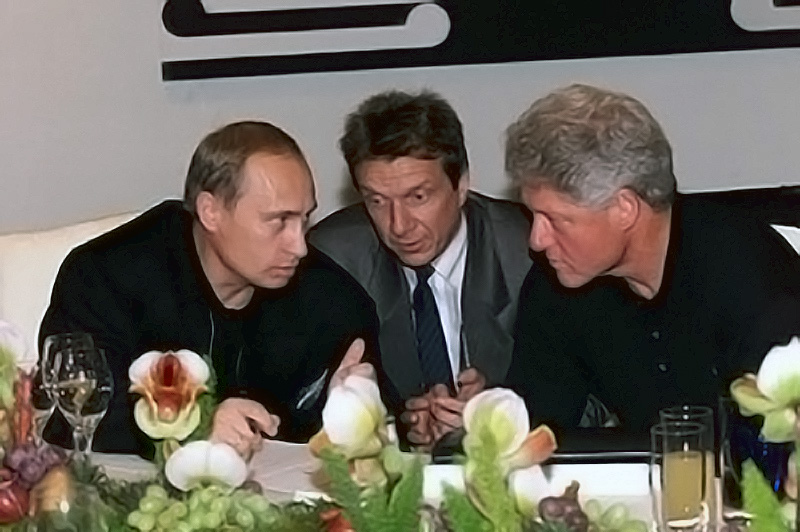 Clinton Library declassifications plus Archive lawsuit open verbatim Clinton-Putin and Clinton-Yeltsin conversations
Clinton Library declassifications plus Archive lawsuit open verbatim Clinton-Putin and Clinton-Yeltsin conversations
U.S. emphasis on importance of transfer of power by ballot box gives way to merely endorsing peaceful transition as Yeltsin resigns and anoints Putin in 1999
New Light in a Dark Corner: Evidence on the Diem Coup in South Vietnam, November 1963
1 November 2020 — National Security Archive
JFK Was More Inclined toward Regime Change than Earlier Believed
Newly Released JFK Tape and President’s Intelligence Checklists Fill in Gaps in Record
South Vietnamese Leader’s Notes Published for First Time, Written Hours Before Assassination
The CIA and Chile: Anatomy of an Assassination
22 October 2020 — National Security Archive
Chile Marks 50th Anniversary of Assassination of Chilean Commander-in-Chief, General René Schneider
’60 Minutes’ Posts Dramatic Exposé on Henry Kissinger’s Role and Schneider Family Lawsuit
Schneider’s Murder: “a stain on the pages of contemporary history”
Reconnaissance Flights and U.S.-China Relations
16 October 2020 — The National Security Archive
“Regrets,” But No Apologies
Washington, D.C., October 16, 2020 – Over the years, aerial and naval encounters have threatened to destabilize U.S-China relations as the two powers contest each other’s rights in international airspace and waters. A major incident occurred on 31 March 2001 (Washington time) when a U.S. EP-3 reconnaissance aircraft made an emergency landing on China’s Hainan Island after a Chinese People’s Liberation Air Force aircraft collided with it in international airspace, some 62 miles from Hainan. Today, the National Security Archive is publishing for the first time “talking points” and position papers justifying the U.S. position in the EP-3 crisis prepared for Secretary of Defense Donald Rumsfeld. The documents are part of a release of Rumsfeld “snowflakes” acquired through an Archive lawsuit against the Pentagon. Continue reading
